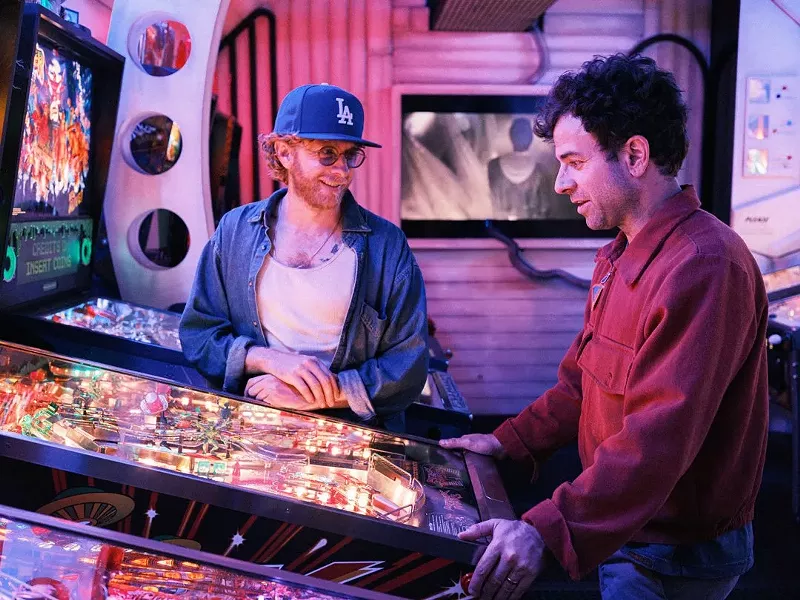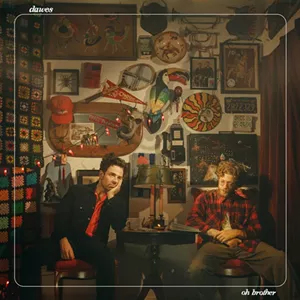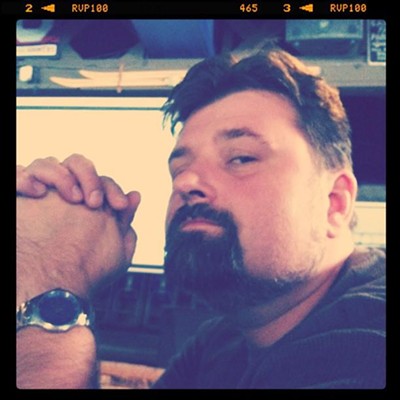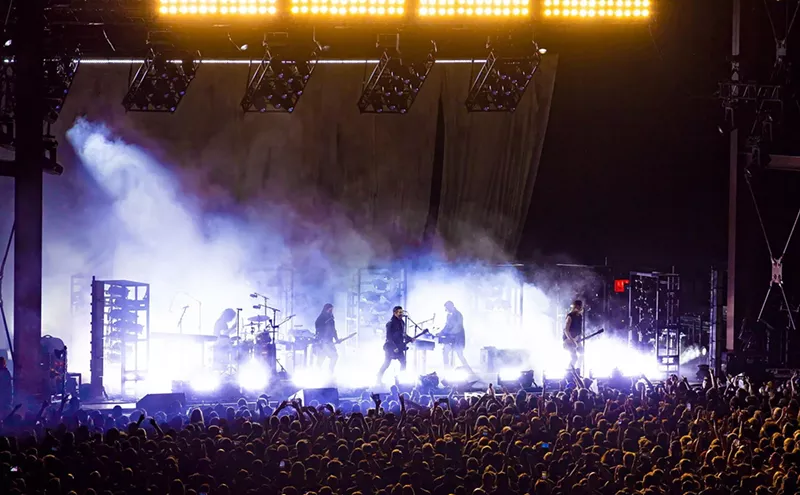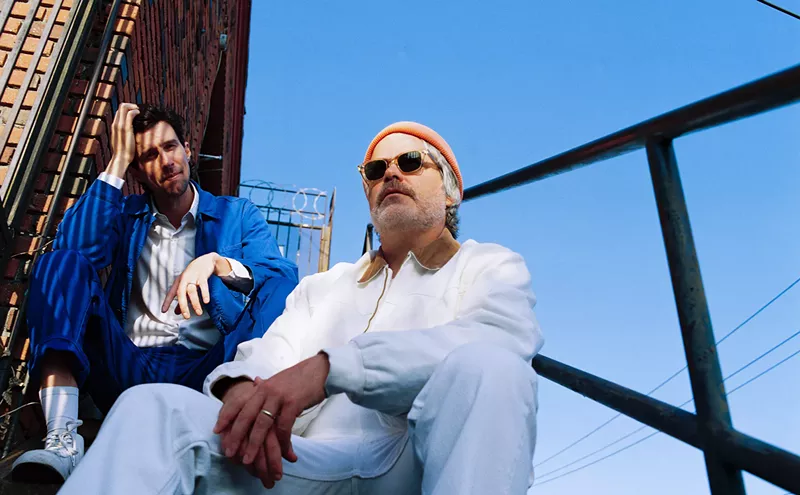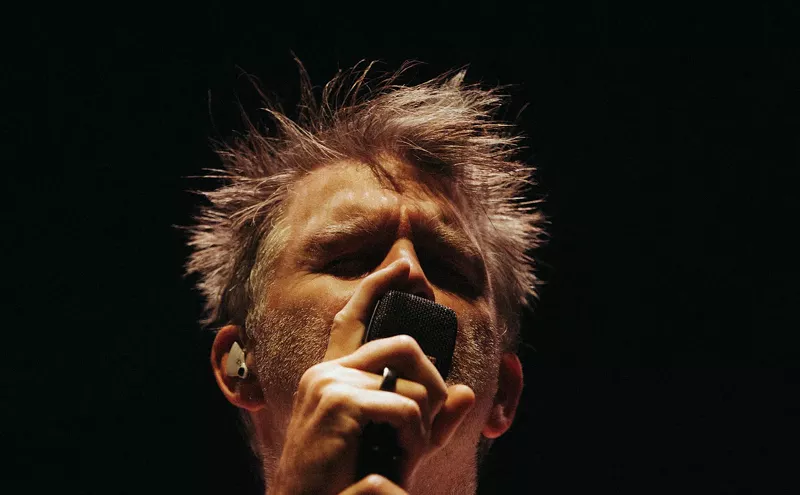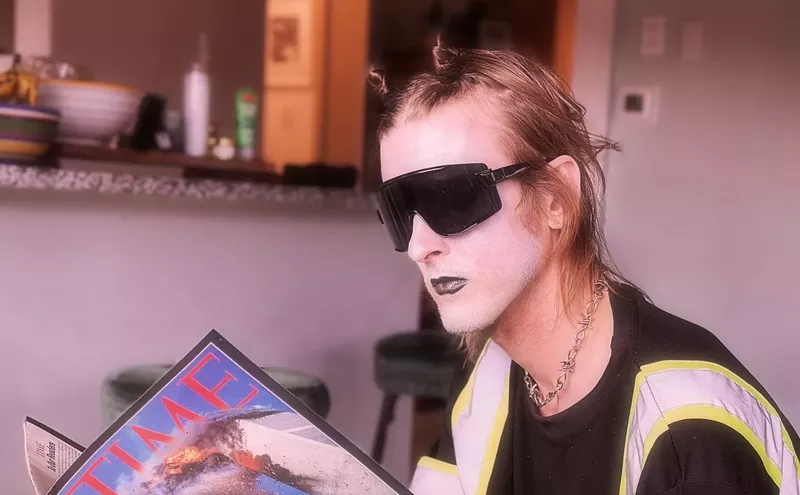Dawes has seen a lot of stages, both literally and figuratively, in the sixteen-odd years that it's been making music. Of late, the band's been even busier than usual — because the musicians in this L.A.-based band are just a few of the countless Californians still dealing with the after-effects of the January fires.
Dawes founders Taylor and Griffin Goldsmith were both affected by the Eaton Fire in Altadena. They lost the music studio connected to Taylor's home, and their entire instrument collection went with it. The home itself survived, though barely—Taylor's wife, actress and singer Mandy Moore, said on Instagram that it was "not livable, but mostly intact." Griffin and former Dawes bassist Wylie Gelber weren't as lucky; both of their homes were completely destroyed.
On January 30, Dawes joined other musical artists at the Crypto.com Arena as part of the FireAid benefit concert, performing "Time Spent in Los Angeles" and joining Stephen Stills on "For What It's Worth" and Graham Nash on a rendition of CSNY's "Teach Your Children." And just three days later, Taylor Goldsmith, with Griffin on drums, sang "I Love L.A." alongside John Legend, Sheryl Crow, Brad Paisley, Brittany Howard and St. Vincent to open the 67th Grammy Awards.
It's been a consuming, contemplative and somewhat heartbreaking time — but those are three of the things that Dawes has been singing about for years now.
We caught up with lead singer, guitarist and songwriter Taylor Goldsmith before Dawes plays the Ogden Theater on April 23, to talk about the band and its support of L.A.'s recovery.
Westword: The band has been through a lot of changes over the years — can you go back to where the band started, how it came together?
Taylor Goldsmith: Wylie [Gelber], Griffin [Goldsmith] and I were the core that wanted to make something happen. We had a handful of tunes, no band name, but a local residency where we’d play with different fourth members each week to help us figure out what we needed. Initially, we thought that would be a guitar player — but when we met Tay Strathairn, it felt like he shared our ethos and that was going to be the band. He wasn’t with us forever, but he was with us through All Your Favorite Bands — and he missed a chunk of time with us during the recording of Nothing Is Wrong, so he’s not on that but he did the touring for it.
What was the first moment when you felt like "This is it; we're making it?" Was it your first TV appearance on Craig Ferguson's late-night show? Or your later appearance on Letterman?
We never felt like “we made it.” We still don’t. It always seems like if there’s enough work on the books for the next year, then that’s all we can ask for. None of our records or songs have ever skyrocketed into the culture. We’ve really never felt like we’re a part of the culture — but that, in its own way, has made our relationship with our fans that much deeper.
So how do you define the Dawes sound now? It was at first often described as "Laurel Canyon." Was that purposeful on your part? And how has that sound developed over the years?
We never called it “Laurel Canyon.” It felt synonymous with calling it “'70s Californian,” and we definitely didn’t see ourselves as that. Sure, we had certain traditional qualities, but we wanted our sound to be singular. Similar to how someone like Gillian Welch’s music harkens back to a time gone by, but truly sounds like an original that you couldn’t find a version throughout the past. We didn’t even feel like we sounded Californian at first. We listened to John Prine and Bob Dylan as much as Neil Young and Joni Mitchell, and we didn’t differentiate between the camps geographically. Looking back, I think we always sounded like a California band, but it was never intentional. Which makes it feel that much more genuine, in my estimation.
Lots of great singer/songwriters on that short list. I can definitely see the connective tissue back to some of the stuff John Prine was doing over the years. Sort of an ear for tunes, and also quirky details that ring true. Are those all artists you've patterned yourself on?
There’s no single artist that serves as a road map, but Joni might be the closest thing. Pushing her writing and her music to her limits with every song and every record. Not being afraid of getting more ambitious as her time went on. Not being concerned about writing hits, but trusting that her music would find an audience. We don’t always achieve that same philosophy, but it’s something to strive for.
Has touring changed with the shifting of the band's progress? Anything you miss from those early days?
It’s changed just because we’re older and we have a certain business in place. We don’t really tour outside of the States because we don’t really have much business anywhere else and end up losing a lot of money. Which means we have to strategize how often we tour stateside. Out of all the bands coming up when we did, I’m proud to say we’ve developed somewhat more of a live identity, so we are able to get to festivals and to different towns maybe slightly more than other artists. In terms of what I miss — it was fun to ride in the van every day and set up our own gear every night and all crash in the same hotel room. I wouldn’t say I miss it enough to want it back, but I think fondly of those times.
You're going to be at the Ogden on April 23; how many times have you played Denver? Any specific memories of playing here in the past?
Denver is always either one of our headline shows at places like the Ogden —those seem to get more and more fun — or opening for someone at Red Rocks. Most recently, that was Avett Brothers. You asked earlier if we ever had a “We’ve made it” moment, and I said we haven’t. I think headlining Red Rocks is the specific dream in our heads for what “making it” would feel like. Not sure if it’ll ever happen, but it’s something we still dream about.
Let's talk about your L.A. roots, and the losses you and so many others suffered in the recent fires. How did you all first hear about the fires encroaching on your places? Were you home at the time, or on the road?
We were home when it all started happening. Griff called my wife because my phone wasn’t on me, and said we needed to go. He was picking up our parents and we got our kids in the car and we headed to a friend’s place. From there, we hoped we’d wake up to it all being over and homes being safe. But it was quite the opposite. Not sure if we’ll ever fully be able to grasp the magnitude of what happened. Big fires in L.A. before this would amount to losing about 600 structures in the worst examples. This was somewhere around 10,000 and that’s not even counting the Palisades, which was a completely separate fire on the same day. It’s really hard to wrap your head around.
I know you've been active in the community support for the losses from the L.A. fires. What was most moving about all those benefits and appearances?
Just finding ourselves as ambassadors of our community. I never thought that would be in the cards for a band like us with a town like Altadena. But it was one of the greatest honors of being a musician. If there’s any way we can help spread the word or help tell the story or help remind anyone listening that there’s a long road ahead…then that's something we want to do.
Where does Dawes go from here? What are you excited for next?
We’ve always just been eager to make more music. The next album will be our tenth. Which feels like a lot and also feels like just a beginning somehow. Our favorite artists have always been the ones with mountains of music, massive catalogues. And we want to be our own version of that. I think to dig Dawes, you kind of have to get into the whole thing. So we wanna keep adding to the pile.
Dawes, 7 p.m. Wednesday, April 23, Ogden Theatre, 935 East Colfax Avenue; for tickets and more information, see the AXS website.

Audio By Carbonatix
[
{
"name": "GPT - Billboard - Slot Inline - Content - Labeled - No Desktop",
"component": "23668565",
"insertPoint": "2",
"requiredCountToDisplay": "2"
},{
"name": "STN Player - Float - Mobile Only ",
"component": "23853568",
"insertPoint": "2",
"requiredCountToDisplay": "2"
},{
"name": "Editor Picks",
"component": "17242653",
"insertPoint": "4",
"requiredCountToDisplay": "1"
},{
"name": "Inline Links",
"component": "18838239",
"insertPoint": "8th",
"startingPoint": 8,
"requiredCountToDisplay": "7",
"maxInsertions": 25
},{
"name": "GPT - 2x Rectangles Desktop, Tower on Mobile - Labeled",
"component": "24956856",
"insertPoint": "8th",
"startingPoint": 8,
"requiredCountToDisplay": "7",
"maxInsertions": 25
},{
"name": "Inline Links",
"component": "18838239",
"insertPoint": "8th",
"startingPoint": 12,
"requiredCountToDisplay": "11",
"maxInsertions": 25
},{
"name": "GPT - Leaderboard to Tower - Slot Auto-select - Labeled",
"component": "17676724",
"insertPoint": "8th",
"startingPoint": 12,
"requiredCountToDisplay": "11",
"maxInsertions": 25
}
]

